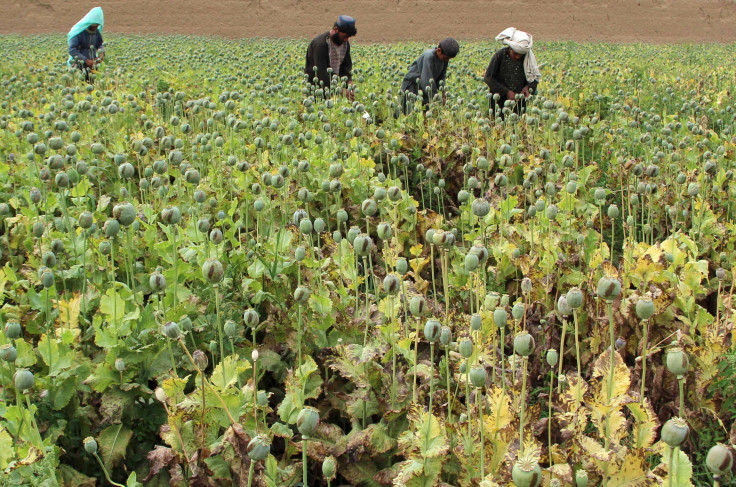Funding Terrorism: Taliban Earns $15M A Year From Pistachios In Afghanistan

The Taliban has earned $15 million annually from pistachio crops in the Afghanistan's northwestern Kushki Kuhna District. The terror group profited from the region’s two pistachio forests spread over 32,000 hectares of land than any other organization, the district’s administrative chief, Syed Mohammad Chishti Modudi, told Pajhwok Afghan News Monday.
Local farmers accused the Taliban of stripping the region of its much-needed export commodity after its terrorists raided the pistachio forest in July 2016 and illegally harvested up to 40 percent of the country’s output that year, Modudi said.
Read: War In Afghanistan: Donald Trump Should Stop Conflict, Withdraw US Troops, Taliban Warns
A similar scene was witnessed in the northeastern Afghan province of Kunduz last year, where the government forces didn't have any authority over the pistachio forest because they were located" in Taliban-controlled areas,” Hafizullah Benish told Agence French Presse. If the pistachio crops weren't forcefully taken by members of the terror group, local farmers could have sold them for a combined $525,000 that year.
Nearly forty years ago, before Afghan lands became ravaged in continuous wars between Taliban and government forces, Afghanistan was covered in 450,000 hectares of natural pistachio forests, Mohammad Aman Amanyar, the forest supervisor for the Agriculture Ministry, told Agence France-Presse. The terror group targets pistachios more than any other nut because they grow in natural forests without the need for cultivation, as opposed to other nuts like peanuts, which need to be watched over by farmers. The prevalence of pistachios in Afghanistan have depleted in the last four decades, with the density of its forests being reduced from an average of between 40-100 trees per hectare to 20-40 trees per hectare in 2016, Amanyar said.
Over the last 12 years, the Afghan government implemented efforts to regrow its pistachio forests by banning access to them before harvest time in 11 provinces. Kabul replanted 9,700 hectares of pistachio forests across the country between 2004-2014, where exports ranged from 500 to 1,500 tons of nuts over the time span, worth a combined total of 4.2 million.
The Taliban had an annual budget of roughly $500 million in 2015, the Huffington Post reported. Conversely, the Islamic State, another Islamic terror group, had a yearly budget of about $360 million, mostly from crude oil sales in its various oil-rich territories across the Middle East, the Washington Post reported Nov. 18, 2015.
The Taliban emerged in Afghanistan in 1978 as resistance group amid the Soviet Union's invasion of the middle eastern nation that year. It ruled Afghanistan from 1996 until 2001, when a U.S.-led invasion overthrew the regime for proving a safe haven for al-Qaeda militants such as Osama bin Laden.
© Copyright IBTimes 2025. All rights reserved.






















